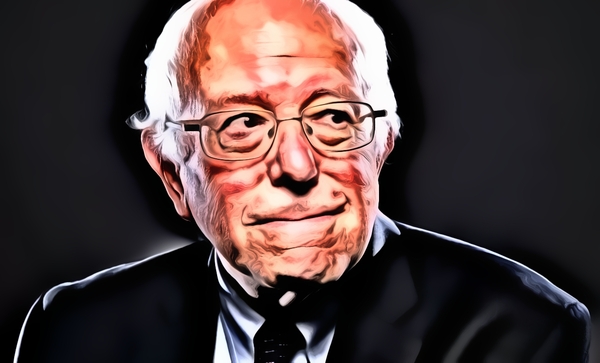
Think of it as a museum of lost grandeur, populated mostly by Formerly Important People. This small but distinctive slice of the capital's demography finds its lives of power and purpose whittled to the scale of a pension and gravitates to such buildings. Accustomed to congressional suites or the large offices of undersecretaries, the FIPs require big walls to hold all their photographs of younger selves in historic company. They need ample space to display little gifts received as tokens of gratitude from nations that no longer exist.
In the overheated entry, I occasionally encountered a brusque little man in his eighties at the mailboxes. He had a shock of white hair and the air of a person who expected to be recognized, if only so that he could be annoyed at the intrusion. On perhaps our third encounter, when I glimpsed more than the back of his head, it hit me: Eugene McCarthy. I murmured, "Hello, Senator," and he grumbled something in return.
Not 30 years earlier, this same man had occupied the electrified heart of a buzzing, sparking madness in U.S. politics. It was 1968. There was a giant in the White House, Lyndon Johnson, who found himself there by fate and an electoral landslide. This giant was weakened by the wound of Vietnam - but no one knew how weak, and wounded giants can be dangerous indeed. No one, it seemed, had the guts to test him.
Anti-war strategist Allard Lowenstein reportedly begged Sen. Robert F. Kennedy of New York to challenge Johnson. No dice. Lowenstein pleaded next with Sen. George McGovern of South Dakota to do it. Nope.
Eugene McCarthy, a former monk-in-training from Minnesota, said yes.
Shaggy-headed college students clipped their hair, declared themselves "Clean for Gene," and trooped to New Hampshire to knock on doors. Sometimes, the volunteers interrupted the evening news, which was grim with reports of North Vietnam's Tet Offensive. When McCarthy won more than 40 percent of the votes in that first primary, and held the giant below 50 percent, suddenly everyone could see that Johnson's wound was mortal. The president dropped out of the race within weeks. The Democratic party split wide open just as the country was going half crazy, and the weird, flawed figure of Richard Nixon slipped into the presidency.
All these McCarthy memories came rushing up when Sen. Bernie Sanders, I-Vt., announced Tuesday that he's running for president again. It seems Sanders is making the same mistake McCarthy made as he returned time and again to the presidential well - 1972, 1976, 1988, 1992. Both men were improbable candidates whose willingness to challenge a giant paid off in a transient flash of glory. But Sanders appears no more aware than McCarthy that the moment doesn't last.
History will not be hoodwinked by the thin excuses Hillary Clinton's supporters make for her disastrous loss in 2016. Only a terrible candidate could have managed to lose to Donald Trump. For all the headings on her resume, Clinton had already demonstrated this weakness by losing to an inexperienced Barack Obama in 2008. And yet, as she limped into 2016, only Sanders, among Washington figures, would test her.
Like McCarthy, the Vermont independent tapped something: the anti-giant impulse. Those clean-shaven boys for Gene had their spiritual heirs in the oft-bearded Bernie Bros. McCarthy's anthem came courtesy of Peter, Paul & Mary. Sanders played Simon and Garfunkel for his soundtrack.
But neither candidate grew into the larger force that can take an impulse and turn it into victory. It is a hard, bitter lesson for most senators and governors and celebrity candidates to learn that history is full of accidents and coincidence and happenstance and contains very few masters of fate.
Sanders filled the anti-Hillary vacuum in 2016. And like the vacuum McCarthy filled in early 1968, this was a fleeting opportunity, seized and then gone. For a moment, it took Sanders to the heart of a buzzing, sparking madness. And, much as McCarthy's moment ended with Nixon, the Sanders moment faded with the weird, flawed figure of Trump in the White House.
However the 2020 campaign might unfold for the Democrats, there is no wounded giant to define the party fray. Minus the vacuum, Sanders will find, like gruff Gene, that his moment is gone, his agenda absorbed by more plausible candidates, his future behind him. Only the residue of unslaked ambition remains.
Every weekday JewishWorldReview.com publishes what many in the media and Washington consider "must-reading". Sign up for the daily JWR update. It's free. Just click here.
(COMMENT, BELOW)


 Contact The Editor
Contact The Editor
 Articles By This Author
Articles By This Author